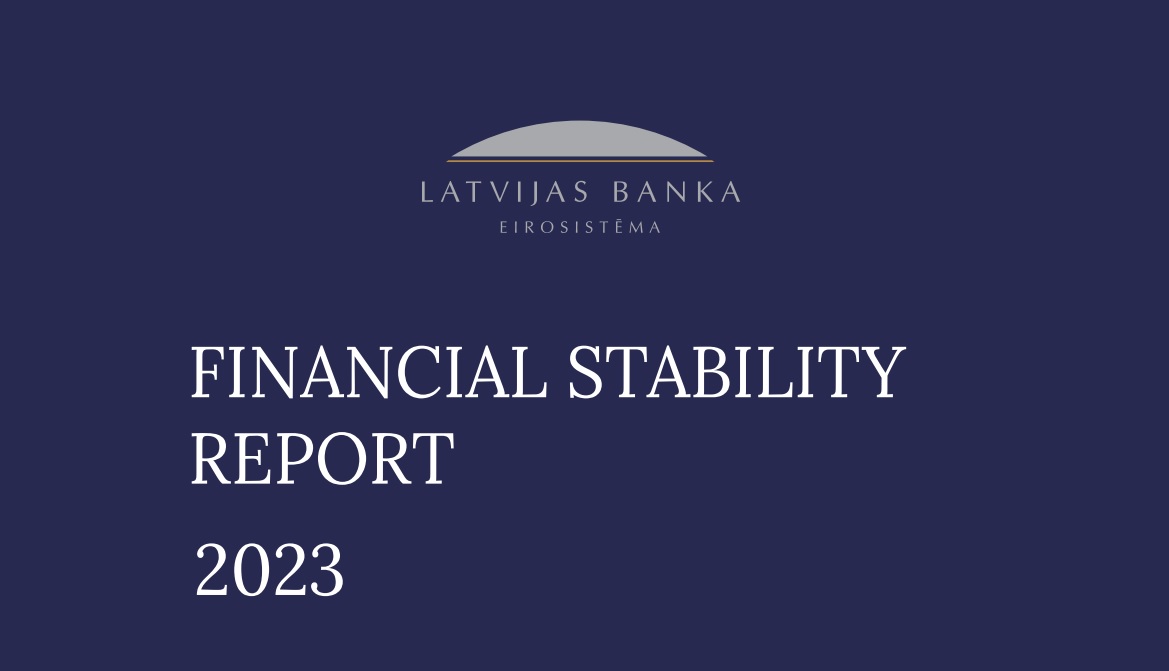"In the past year, the economy and financial sector have faced several significant challenges, including the economic downturn caused by the Russian invasion of Ukraine, widespread and rapid cost increases, the energy crisis in Europe, challenges related to compliance with sanctions imposed on Russia and Belarus, and the swift pace of interest rate hikes by central banks to curb high inflation," LB notes.
The report identified several potential risks to the economy, warning that "a prolonged rapid price increase and tight financial conditions may negatively affect the banks' customers and the asset quality and may hamper the recovery of economic growth. Further increase in interest rates may have a significant impact on the debt servicing capacity of businesses operating in certain sectors. For a rather small share of households, the debt burden can become excessive."
One key problem that the central bank has repeatedly underlined is the reluctance of the commercial banks to lend. And in this case too, LB waves a red flag.
"The inadequacy of the current level of financing of the economy to match the level of financing needed for sustainable economic development, due to demand and supply factors, remains a pressing and systemically important issue. It is important to address the structural factors that have contributed to a prolonged sluggish investment and lending environment," LB says.
Nevertheless "The financial system of Latvia remains stable, and the ability of credit institutions to absorb shocks is good," it adds, though "the risks of cyberattacks and other large-scale unexpected disruptions in the financial infrastructure remain high."
Perhaps the most interesting section of the report includes some data on activities by persons subject to sanctions as a result of Russia's invasion of Ukraine and says that attempts at circumventing sanctions are "intensifying rapidly".
"This is evidenced by information from Latvian authorities. The Financial Intelligence Unit receives increasingly more suspicious transaction reports on the circumvention of sanctions (13 reports were received in 2021, 281 reports in 2022, and 114 reports already in the first three months of 2023). The number of infringements of sanctions imposed against Russia and Belarus identified by the Customs Board of the SRS is also moving up (3,433 cases in 2022, including 250 attempts to take banknotes of the EU Member States out of Latvia, and 2,081 cases already in the first three months of 2023, including 581 attempts to take banknotes of the EU Member States out of Latvia)."
While the decisions taken by Latvian credit institutions in 2022 to suspend payments to and from Russian and Belarusian credit institutions and enforcement of sanctions have resulted in a significant decrease in transactions, at the same time, the amount of cross-border payments with Armenia, Azerbaijan, Kazakhstan, Kyrgyzstan, Moldova, Georgia, the United Arab Emirates, Serbia and Turkey have increased sharply, raising suspicions that these countries may be acting as a back door to Russia and Belarus.
"For example, in the second half of 2022, compared to the second half of 2021, the exports of commodities to which EU restrictions apply and which are prohibited to be exported to Russia or, in other words, are subject to sanctions, from Latvia to Russia decreased by 66.4 million euro or by 85%, while the exports of these commodities to the CIS countries located close to Russia increased by 29.8 million euro or by 264%. For example, the volume of exports of commodity groups prohibited to be exported to Russia to Armenia increased by 1303%, to Kazakhstan – by 996%, and to Kyrgyzstan – by 685%, going far beyond the rise in the volume of exports of other commodities exported from Latvia to those countries."
The central bank also voices a strong statement that Latvia should not backslide on its commitment to counter money-laundering and related crimes after working hard to clean up its once-notorious banks over the last decade.
"The substantial boost in the volume of crossborder payments received from the above countries in Latvian credit institutions is mainly explained by payments to and from bank accounts opened by Russian subjects in these countries, both in response to the decision of Latvian credit institutions to stop payments to and from Russian and Belarusian credit institutions, and to the restrictions imposed on Russian banks," LB says.
"With the growing threats to Latvian credit institutions to be involved in violations of sanctions and/or in the laundering of money criminally acquired through it, the risk of reputation of the Latvian financial sector also increases. Despite the substantial progress achieved during the last years in the field of AML/CFTP and enforcement of sanctions, which allowed Latvia to become an example of good practice internationally, any scandal related to breach of sanctions involving any participant of the Latvian financial sector, would harm the reputation of the entire sector."
"To reduce the risk of reputation due to insufficient supervision and control of the enforcement of sanctions the competent authorities should continue to actively and fully inform and educate participants of foreign trade of Latvia about [the] sanction enforcement issue," LB urges.
Despite the present threats, banks can look forward to rising profits. "The profitability of credit institutions is good, and it is expected to increase significantly in 2023... The profitability prospects of credit institutions are very good," says LB.
The Financial Stability Report also includes interesting appendices on topics such as the impact of natural disasters such as floods on Latvia's economy and the insurance industry.
As in previous reports, the results of stress tests conducted on credit institutions by Latvijas Banka are also presented, including a scenario in which all loans issued to Russian, Belarusian and Ukrainian residents are written off.
The Financial Stability Report can be downloaded on Latvijas Banka's websites at makroekonomika.lv and bank.lv (https://datnes.latvijasbanka.lv/fsp/FSP_2023_EN.pdf).






























